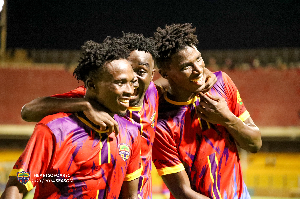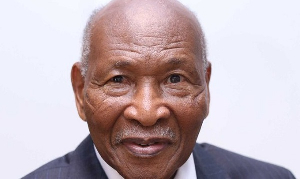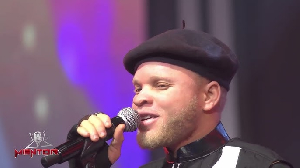- Home - News
- TWI News | TV
- Polls
- Year In Review
- News Archive
- Crime & Punishment
- Politics
- Regional
- Editorial
- Health
- Ghanaians Abroad
- Tabloid
- Africa
- Religion
- Election 2020
- Coronavirus
- News Videos | TV
- Photo Archives
- News Headlines
- Press Release
General News of Thursday, 4 July 2002
Source: --
MPs divided on language policy in Education
Accra (Greater Accra) - Members of Parliament on Tuesday expressed varied opinions on the use of English as the only medium of instruction in basic schools. Mr Albert Abongo, NDC-Bongo, had whipped up interest in the issue when he read a statement calling for the reconsideration of government's new directive to freeze the use of Ghanaian Languages as the medium of instruction for basic classes one to three.
He said government had rushed in taking the decision since its own special committee set up to review the educational reforms was yet to conclude its findings. The member said he did not accept government's reason for the directive that it would improve the pupils' level of comprehension of the English Language and the child's performance in other subjects.
"How does Cabinet expect the poor class one pupil in my village school already bedevilled with several other problems to comprehend any subject matter in English. The situation is not different for the urban under-privileged."
He said children attained the cognitive maturity and the conceptual development that took place as pupils learn in the first language and that it later enhances acquisition of English. "In addition, initial acquisition of literary skills in the first language facilitates the learning of English reading and writing."
Captain Nkrabeah Effa Dartey (retired), Deputy Minister of Local Government and Rural Development, said since English was the Lingua Franca of the country every child must learn how to read and write English.
He said use of Local Languages in most of Ghanaian schools had rendered even university students incapable of expressing themselves in English. "The member is inviting us to go backward. It is very sad. The House must applaud the Cabinet's decision."
Prof Dominic Fobih, Minister of Environment and Science, said the new policy was not a snub of the local languages but rather preparing the ground for the eventual use of Local Languages at the basic level.
He said most teachers were not conversant with the methodology of Local Languages saying that though the original idea was perfect, it would be wishful thinking to believe that it could be implemented.
Mr Johnson Aseidu Nkestia, NDC-Wenchi West, said the use of English would ensure national integration. He said even if Ghanaian Languages were used as medium of instruction, those who had minority tongues would still have to acquire the languages of the majority.
He proposed the use of French along English so that Ghanaians would be able to communicate better with their French-speaking neighbours. Ms Christine Churcher, Minister in-charge of Basic, Secondary and Girl-Child Education said the new policy would erase widening disparity between the rural poor and the urban rich.
Two unanswered questions
Members of Parliament surveyed each other as they were asked: "How many of you have children attending public schools."Ms Christine Churcher, who asked the question when defending the government's decision to use English Language as a medium of instruction in basic schools said, "you do not know the gravity of the situation." If her question was to embarrass those, who opposed the directive, Alhaji Amadu Ali's, NDC-Attebubu South, question to Professor Fobih, Minister of Environment and Science was more intriguing.
"Prof, when we were in school your Faculty members taught us to teach the child from the known to the unknown. How do you reconcile that with your position?" Prof Fobih, a former Dean of the Faculty of Education at the University of Cape Coast also skipped the question as he argued for the new policy.
Members were debating the Government?s policy of using English as the medium of instructions in basic schools as against the previous policy which states that the child should be instructed in the language of the area he or she is schooling in the first three years in basic school.










